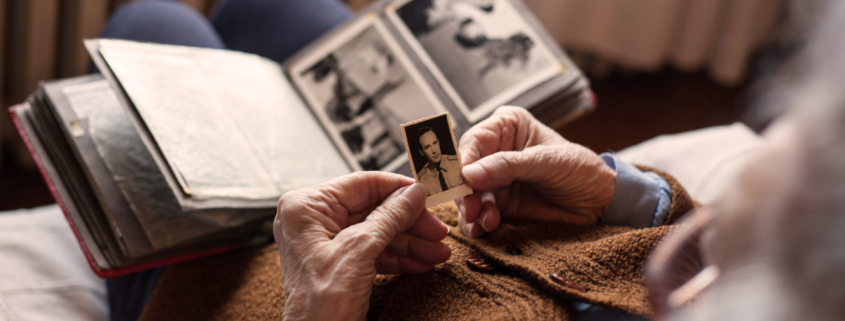As our loved ones age, it is important to watch out for signs of memory loss. The Centers for Disease Control and Prevention (CDC) notes that dementia is not a singular disease, but a general term for an impaired ability to remember, think, or make everyday decisions.
Signs of memory loss are indicators of when extra care may be necessary to protect your loved one’s well-being. Plus, elders with memory loss are less likely to identify or report abuse.
If you think your loved one may have been the victim of elder abuse, the Florida elder abuse attorneys from Lytal, Reiter, Smith, Ivey, & Fronrath can help. Schedule a free consultation by calling (561) 655-1990 or visiting our site.
Memory Loss is a Main Symptom of Dementia
Of adults aged 65 years or over, it is estimated that about five million American adults have dementia. One of the most common types of dementia is Alzheimer’s disease. Dementia can be very obvious given particular signs and symptoms. In other cases, the older person may work to hide their memory loss.
When individuals are having difficulty remembering what they experience and where they have been recently, the opportunity for abusers to take advantage of the issue is magnified.
Regularly visiting older adults who are living in nursing homes is helpful to ensure that your loved one is healthy, both physically and mentally. This helps to guard against the potential of abuse, as we’ll explore below.
Signs That Your Loved One May Have Dementia-Related Memory Loss
Memory issues may expose your older loved one to the risk of financial, emotional, or physical abuse in their nursing home. These warning signs of memory loss can help to provide you and your family early warning that something is not right.
Beyond keeping their memory in mind, it is also important to check up on the physical and mental health of your loved one in the nursing home. Changes in mood, everyday activities, and other behaviors can indicate that they are being abused.
Asking the same question over and over again.
When your loved one asks the same questions over and over, that means that their short-term memory is not imprinting correctly. Difficulty remembering things in the short term can lead to costly complications in everyday life.
It can also expose your loved ones to the risk of abuse, as they may not remember that it happened shortly after it occurred. Look out for bruises and injuries that your loved one does not have an explanation for to identify abuse.
Becoming increasingly confused about time, people, and places.
One sign of dementia-related issues is an increasing level of confusion about people, time, and places. They may forget the name of an acquaintance that they would otherwise remember.
They may also struggle with determining when a particular experience happened, whether in the distant or recent past.
Getting lost in places they’re familiar with.
A sign of memory loss is becoming lost in a location that your loved one is familiar with. Getting lost in their neighborhood, or in areas of the nursing home they should be familiar with, is a telltale sign of dementia-related memory loss.
Repeatedly having trouble following directions.
The inability to follow directions is another indicator of difficulty with memory imprinting. If your loved one in a nursing home is having trouble following directions, it is important to keep up with their well-being.
Staff may become frustrated with them as their memory issues worsen, so it is important to ensure that staff are caring and respectful of your loved one’s condition.
Not taking care of themselves.
An older person who fails to take care of themselves could be an indication that they’ve developed a memory problem. Everyday tasks of self-maintenance, like keeping clean, may slip through the cracks as your loved one’s memory issues magnify.
Make sure that your loved one is cared for and attended to. If they start having issues, make sure to notify the nursing home.
Memory Loss Can Exacerbate Abuse
The National Institute on Aging notes that elders who are experiencing dementia and other memory-related issues can be at a greater risk of abuse. The most likely targets for elder abuse are older adults without much family or friend-based support, and especially persons with disabilities, memory problems, or dementia.
When an older adult is having memory issues, they may have difficulty remembering instances of abuse. Further, they may not recall how particular injuries happened, or know where their finances or personal belongings went.
For those who would abuse the elderly, those with memory problems and dementia are easier targets, and these individuals need to be especially cared for to prevent abuse.
Concerned about your elderly loved one? We can help.
The state of Florida takes elder abuse seriously. If you suspect elder abuse it is important to file a report with the Florida Department of Children and Families, an organization in place to protect the rights of vulnerable persons of all ages.
After you have filed a report and contacted the supervisors at the nursing home of your loved one, it is time to reach out to an elder abuse attorney.
For your risk-free, cost-free assessment of you or your loved one’s nursing home abuse injury, schedule a consultation with one of the experienced Florida elder abuse attorneys from Lytal, Reiter, Smith, Ivey, & Fronrath, or call (561) 655-1990.




